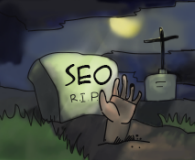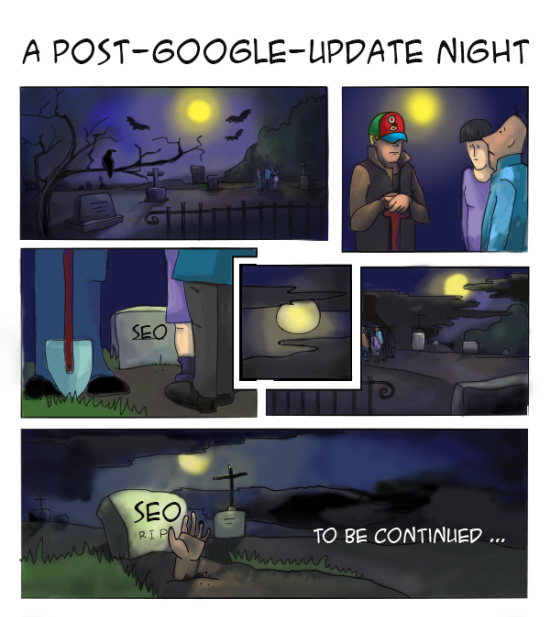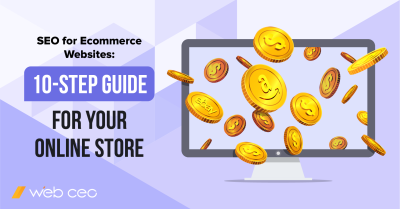
1. SEO is dead!
I decided to start with my favorite and the one that can really kill your website. SEO was announced dead dozens of times. However there are reasons it can’t be true. SEO means “search engine optimization,” and while search engines are alive and popular, SEO will be prosperous. As we can see Google is very much alive. The only thing that is happening to SEO is it’s constantly changing. I like to see these changes as SEO evolution.
2. You can’t automate SEO.
This myth appeared long time ago when all automated SEO techniques were spammy: content scraping, automatic link exchange queries, keyword stuffing, etc. Today search engines penalize for all these manipulations. However, you can use SEO tools to find keywords, check rankings, spy on competitors or analyze your backlink profile and have automatically generated reports sent to you.
You can use SEO tools for website optimization, especially when you are sure you are not violating search engines guidelines and the tools you use are professional and of high quality.
3. I do not need SEO, because I have social media marketing.
Yes, search engines now show that they care more and more about understanding social signals. It’s a natural evolution for evaluating backlinks: relevant content that is authoritative get more search engine’s trust. However search engines use dozens of signals to rank a page and social is just one of them. Modern online marketing should consist of SEO, social media marketing, PPC and banner ads to take all possible opportunities and generate leads.
4. It is better to build links, not content.
This concept is outdated. And frankly speaking it was always incorrect. Content was always King and unique well-written content always attracted natural links. Inbound links are an important part of your website’s authority (especially after the Google Penguin update went live). However, if you ask me how you can invest more in your website, I’d recommend creating unique and informative content on it. It is always better to invest in long-term prospects.
5. Usability has nothing to do with SEO.
Signals that search engines use to rank websites include website quality. The quality consists of unique relevant content mentioned above and of the technical quality of your website’s pages. Visitors hate broken links; so do search engines, because they want to supply searchers needs. If your site loads fast and has no broken links and missing images, it will benefit both in the eyes of visitors and search engines. Remember to audit your website on a regular basis to control this.
6. I must rank number 1.
Studies show that the first position in Google gets 33% of search traffic, while the tenth gets only 2%. However, rich snippets and authorship meta data will greatly enhance what your search result looks like and this will increase CTR dramatically as long as you appear somewhere on the first page of results. Also you should remember that Google now provides “Universal Search” where different types of results are blended together. Your website’s homepage may rank number 15, but if you are visible in Google Places, you can still be on the first page of SERPs and you will get a lot of traffic.
Instead of concentrating on being number 1, try to get in as many Google vertical results (images, video, places, etc.) as possible.
7. It doesn’t matter how I interlink pages of my own website.
I am going to repeat this again and again: Google now uses all signals that help it to understand a website’s theme. And your interlinking scheme is one of them. Use link texts that explain what the linked page is about.
Think about internal links as if it’s about voting for things – let the search engine know why you voted a certain way.



